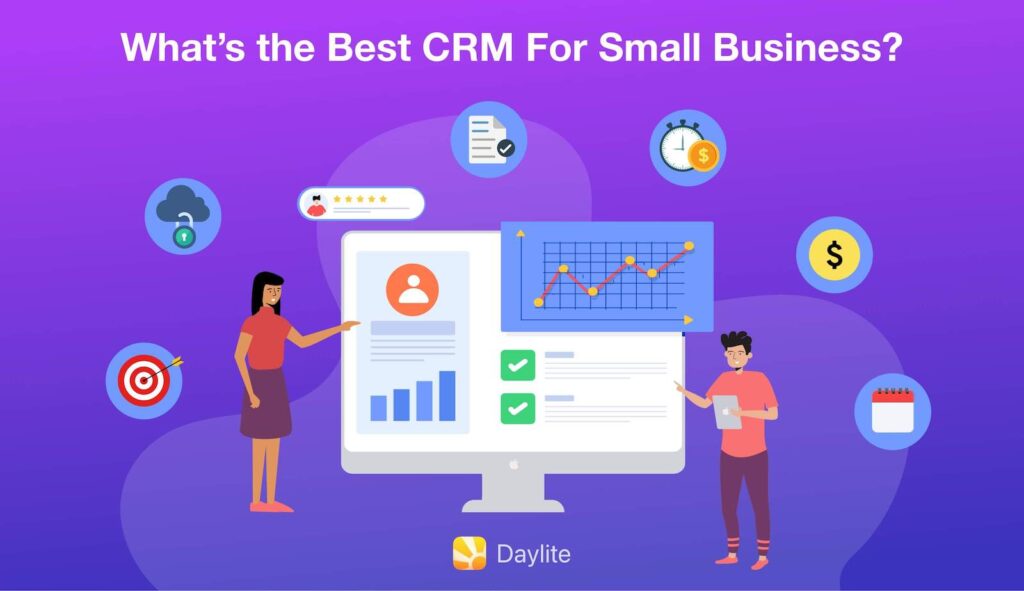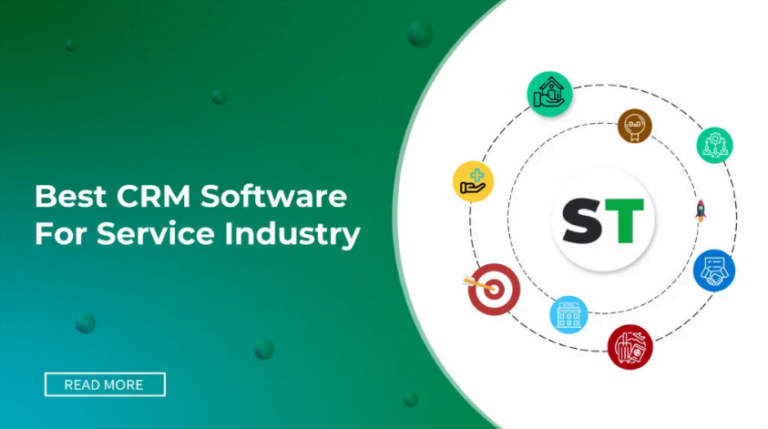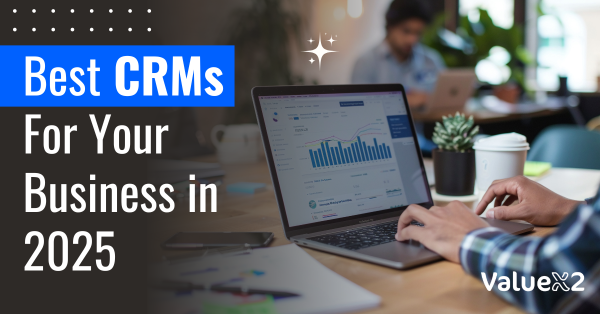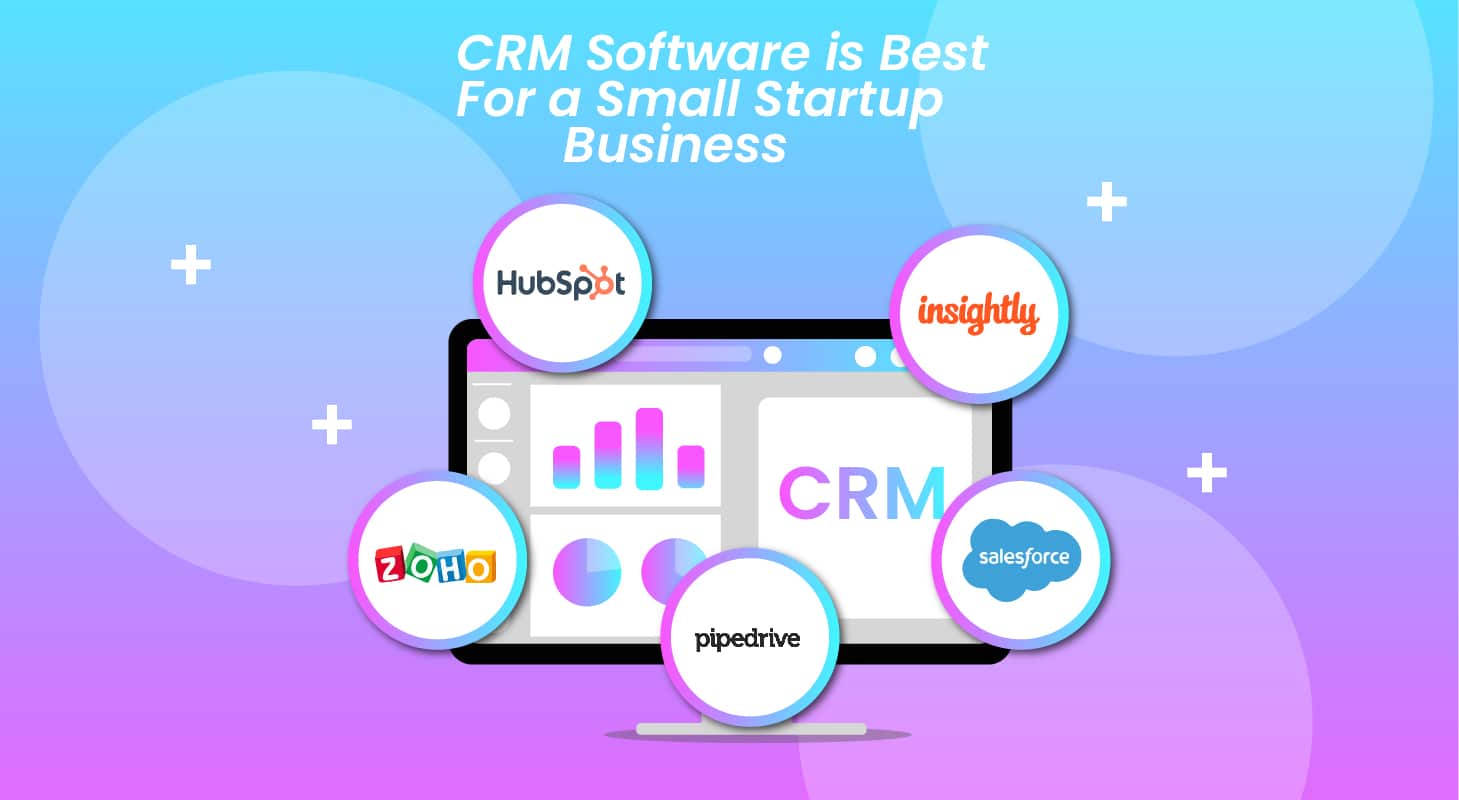Boosting Small Retail: How CRM Can Revolutionize Your Business

The Retail Revolution: Why CRM Matters More Than Ever
The retail landscape has undergone a seismic shift. Gone are the days when a friendly smile and a well-stocked shelf were enough to guarantee success. Today, customers are more informed, more demanding, and have a plethora of options at their fingertips. They expect personalized experiences, seamless interactions, and brands that understand their needs. This is where Customer Relationship Management (CRM) comes into play – a powerful tool that’s no longer just for the big players.
For small retail businesses, CRM isn’t just a nice-to-have; it’s a necessity. It’s the key to unlocking customer loyalty, driving sales, and staying ahead of the competition. Think of it as the central nervous system of your business, connecting every interaction you have with your customers and providing you with valuable insights to improve your operations.
This comprehensive guide will delve into the world of CRM, specifically tailored for small retail businesses. We’ll explore what CRM is, why it’s crucial, how to choose the right system, and how to implement it effectively. Get ready to transform your retail business and create lasting relationships with your customers!
What Exactly Is CRM? Demystifying the Acronym
CRM, or Customer Relationship Management, is more than just software. It’s a strategy, a philosophy, and a technology all rolled into one. At its core, CRM is about understanding your customers, building strong relationships, and improving your bottom line. It’s a system that helps you manage all your interactions with current and potential customers. This includes everything from their initial inquiry to their purchase history and beyond.
Think of it as a centralized database that stores all the information you need about your customers. This includes their contact details, purchase history, preferences, communication logs, and more. With all this information at your fingertips, you can personalize your interactions, anticipate their needs, and provide exceptional customer service. It’s about building a relationship, not just making a sale.
Here’s a breakdown of the key components of CRM:
- Contact Management: Storing and organizing customer contact information, including names, addresses, phone numbers, and email addresses.
- Interaction Tracking: Recording all interactions with customers, such as phone calls, emails, chat conversations, and social media interactions.
- Sales Automation: Automating sales processes, such as lead generation, follow-up, and order management.
- Marketing Automation: Automating marketing tasks, such as email campaigns, social media posting, and targeted advertising.
- Analytics and Reporting: Analyzing customer data to gain insights into customer behavior, sales trends, and marketing effectiveness.
By integrating these components, CRM empowers you to create a 360-degree view of your customers, allowing you to make informed decisions and provide a superior customer experience.
Why CRM is a Game-Changer for Small Retail Businesses
In the competitive world of retail, every advantage counts. CRM provides a multitude of benefits that can significantly impact your business. Here’s why it’s a game-changer for small retail businesses:
Enhanced Customer Relationships
CRM allows you to build stronger relationships with your customers by providing personalized experiences. By understanding their preferences, purchase history, and communication preferences, you can tailor your interactions to meet their individual needs. This level of personalization fosters loyalty and encourages repeat business. Imagine remembering a customer’s birthday or preferred product – these small gestures can make a big difference.
Increased Sales and Revenue
CRM can help you increase sales and revenue by identifying and targeting the right customers with the right products at the right time. By analyzing customer data, you can identify upsell and cross-sell opportunities, personalize product recommendations, and create targeted marketing campaigns. This leads to increased sales and a higher return on investment (ROI).
Improved Customer Service
Exceptional customer service is a cornerstone of any successful retail business. CRM enables you to provide faster, more efficient, and more personalized customer service. By having all customer information readily available, your staff can quickly address customer inquiries, resolve issues, and provide tailored solutions. This leads to increased customer satisfaction and positive word-of-mouth referrals.
Streamlined Sales and Marketing Processes
CRM automates many time-consuming sales and marketing tasks, freeing up your staff to focus on more strategic activities. Automated email campaigns, lead nurturing, and sales follow-ups save time and improve efficiency. This streamlined approach allows you to focus on growing your business rather than getting bogged down in administrative tasks.
Data-Driven Decision Making
CRM provides valuable insights into customer behavior, sales trends, and marketing effectiveness. By analyzing this data, you can make informed decisions about your business, such as which products to stock, which marketing campaigns are most effective, and which customer segments to target. This data-driven approach leads to improved business performance and a competitive edge.
Better Inventory Management
Some CRM systems integrate with inventory management tools, allowing you to track stock levels, predict demand, and optimize your inventory. This helps you avoid stockouts, reduce waste, and ensure you have the right products available at the right time. This integration can be a lifesaver, especially during peak seasons.
Choosing the Right CRM for Your Small Retail Business
Selecting the right CRM system can feel overwhelming, but it doesn’t have to be. Consider these key factors when making your decision:
1. Needs Assessment
Before you start shopping, take some time to assess your business needs. What are your goals? What are your pain points? What features are essential for your business? Consider the following questions:
- What are your primary sales channels (e.g., online, in-store)?
- What customer data do you need to track?
- What sales and marketing processes do you want to automate?
- What reporting and analytics capabilities do you need?
- What is your budget?
Answering these questions will help you narrow down your options and choose a system that fits your specific requirements.
2. Ease of Use
The CRM system should be easy to use and intuitive, especially for those with limited technical expertise. Look for a system with a user-friendly interface, clear instructions, and readily available support. A complicated system will frustrate your team and hinder adoption.
3. Features and Functionality
Consider the features and functionality offered by each CRM system. Does it offer the features you need to achieve your goals? Some essential features for small retail businesses include:
- Contact Management: Manage customer contact information and interactions.
- Sales Automation: Automate sales processes, such as lead tracking and follow-up.
- Marketing Automation: Automate email marketing campaigns and targeted promotions.
- Reporting and Analytics: Generate reports on sales, customer behavior, and marketing effectiveness.
- Integration: Integrate with other tools you use, such as your website, e-commerce platform, and accounting software.
4. Scalability
Choose a CRM system that can grow with your business. As your business expands, you’ll need a system that can handle increased data volume, more users, and new features. Ensure the system can accommodate your future needs.
5. Price and Budget
CRM systems come in various price ranges, from free or low-cost options to more expensive enterprise solutions. Determine your budget and choose a system that offers the features you need at a price you can afford. Consider the total cost of ownership, including implementation costs, training costs, and ongoing maintenance fees.
6. Integration Capabilities
Check if the CRM system integrates with other tools you use, such as your website, e-commerce platform (like Shopify or WooCommerce), email marketing software (like Mailchimp or Constant Contact), and accounting software (like QuickBooks or Xero). Seamless integration streamlines your workflow and eliminates the need for manual data entry.
7. Customer Support
Ensure the CRM system provider offers excellent customer support. Look for a provider that offers various support options, such as online documentation, email support, phone support, and live chat. Reliable customer support is crucial for resolving any issues and getting the most out of your CRM system.
8. Security and Data Privacy
Data security and privacy are paramount. Choose a CRM system that complies with data privacy regulations, such as GDPR and CCPA. Ensure the system uses encryption to protect your customer data and has robust security measures in place to prevent unauthorized access.
Top CRM Systems for Small Retail Businesses
Here are some of the best CRM systems for small retail businesses, along with their key features and benefits:
1. HubSpot CRM
HubSpot CRM is a popular and user-friendly CRM system that offers a free version with robust features. It’s a great option for small businesses looking for an all-in-one solution. Key features include:
- Contact management
- Deal tracking
- Email marketing
- Sales automation
- Reporting and analytics
- Free version available
HubSpot CRM is known for its ease of use and comprehensive features, making it a great choice for businesses of all sizes.
2. Zoho CRM
Zoho CRM is a feature-rich CRM system that offers a free plan and affordable paid plans. It’s a good option for businesses looking for a customizable solution. Key features include:
- Contact management
- Sales force automation
- Marketing automation
- Customer service automation
- Workflow automation
- Customization options
Zoho CRM provides a wide range of features and customization options, making it a versatile choice for businesses with specific needs.
3. Pipedrive
Pipedrive is a sales-focused CRM system that is designed to help sales teams manage their deals and close more sales. It’s a good option for businesses that prioritize sales automation. Key features include:
- Deal tracking
- Sales pipeline management
- Sales automation
- Reporting and analytics
- Integration with other tools
Pipedrive is known for its intuitive interface and focus on sales productivity, making it a great choice for sales-driven businesses.
4. Freshsales
Freshsales is a CRM system that is part of the Freshworks suite of products. It offers a free plan and affordable paid plans. It’s a good option for businesses looking for an integrated solution that includes customer service and support. Key features include:
- Contact management
- Sales automation
- Email marketing
- Phone integration
- Reporting and analytics
Freshsales is known for its ease of use and integrated approach, making it a good choice for businesses that need a comprehensive solution.
5. Agile CRM
Agile CRM is a comprehensive CRM system that offers a free plan and affordable paid plans. It’s a good option for businesses looking for an all-in-one solution with a focus on marketing automation. Key features include:
- Contact management
- Sales force automation
- Marketing automation
- Helpdesk integration
- Reporting and analytics
Agile CRM provides a wide range of features, including marketing automation, making it a good choice for businesses that want to streamline their marketing efforts.
Implementing CRM: A Step-by-Step Guide
Once you’ve chosen your CRM system, it’s time to implement it. Here’s a step-by-step guide to ensure a successful implementation:
1. Planning and Preparation
Before you start implementing your CRM system, take some time to plan and prepare. Define your goals, identify your key processes, and assign responsibilities to your team members. Consider the following:
- Define your goals: What do you want to achieve with your CRM system?
- Identify your key processes: Map out your sales, marketing, and customer service processes.
- Assign responsibilities: Who will be responsible for implementing and using the CRM system?
- Clean your data: Ensure your existing customer data is accurate and up-to-date.
2. Data Migration
Import your existing customer data into the CRM system. This may involve importing data from spreadsheets, databases, or other systems. Ensure your data is formatted correctly and that all fields are mapped properly. This step is crucial for ensuring that your CRM system has the information it needs to function effectively.
3. Customization
Customize the CRM system to meet your specific business needs. This may involve adding custom fields, creating custom workflows, and configuring integrations with other tools. Tailoring the system to your specific requirements will ensure it works efficiently for your business.
4. Training
Provide training to your team members on how to use the CRM system. This training should cover all aspects of the system, from data entry to reporting and analytics. Ensure your team understands how to use the system effectively. Provide ongoing training and support to help them get the most out of the system.
5. Testing and Validation
Test the CRM system to ensure it’s working correctly. This may involve testing data entry, workflows, and reports. Validate that the system is meeting your needs and that all features are functioning as expected. Address any issues before launching the system to your entire team.
6. Launch and Adoption
Launch the CRM system to your entire team. Encourage adoption by highlighting the benefits of the system and providing ongoing support. Make sure your team understands the value of the CRM system and how it will help them do their jobs more effectively. Encourage them to use the system consistently.
7. Ongoing Optimization
Continuously monitor and optimize your CRM system. Regularly review your data, workflows, and reports to identify areas for improvement. Make adjustments as needed to ensure the system is meeting your evolving business needs. CRM is not a set-it-and-forget-it solution; it requires ongoing maintenance and optimization.
Best Practices for Using CRM in Your Retail Business
To get the most out of your CRM system, follow these best practices:
1. Keep Data Accurate and Up-to-Date
Regularly update your customer data to ensure it’s accurate and up-to-date. This includes contact information, purchase history, and preferences. Inaccurate data can lead to wasted marketing efforts and poor customer service. Implement processes to maintain data accuracy.
2. Use the CRM System Consistently
Encourage your team to use the CRM system consistently. This includes entering all customer interactions, updating customer data, and using the system for all sales and marketing activities. Consistent usage will ensure you have a complete view of your customers and can make informed decisions.
3. Personalize Your Interactions
Use the data in your CRM system to personalize your interactions with customers. Tailor your messaging, product recommendations, and offers to meet their individual needs. Personalization builds stronger relationships and increases customer loyalty.
4. Segment Your Customers
Segment your customers based on their demographics, purchase history, and other criteria. This allows you to create targeted marketing campaigns and personalize your messaging. Segmentation is key to effective marketing and customer engagement.
5. Automate Your Processes
Automate repetitive tasks, such as email marketing, lead nurturing, and sales follow-ups. Automation saves time and improves efficiency, allowing your team to focus on more strategic activities. Automate where possible to streamline operations.
6. Analyze Your Data
Regularly analyze your CRM data to gain insights into customer behavior, sales trends, and marketing effectiveness. Use these insights to make informed decisions about your business. Data analysis is crucial for continuous improvement.
7. Provide Excellent Customer Service
Use your CRM system to provide exceptional customer service. Respond to customer inquiries quickly, resolve issues efficiently, and provide personalized solutions. Excellent customer service is a cornerstone of customer loyalty.
8. Integrate with Other Tools
Integrate your CRM system with other tools you use, such as your website, e-commerce platform, and accounting software. Integration streamlines your workflow and eliminates the need for manual data entry. Make the system work with your existing tools.
Overcoming Challenges and Maximizing Success
Implementing and using a CRM system can present challenges. Here are some common obstacles and how to overcome them:
1. Resistance to Change
Some team members may resist using a new system. To overcome this, communicate the benefits of the CRM system, provide adequate training, and involve your team in the implementation process. Address any concerns and be patient throughout the transition.
2. Data Entry Issues
Data entry can be time-consuming and prone to errors. To address this, implement data entry best practices, automate data entry where possible, and provide training on data accuracy. Ensure data is entered consistently and accurately.
3. Integration Problems
Integrating your CRM system with other tools can be complex. To overcome this, choose a CRM system that integrates seamlessly with your existing tools and seek help from the vendor or a third-party consultant if needed. Plan the integrations in advance.
4. Lack of User Adoption
If your team doesn’t use the CRM system consistently, you won’t get the full benefit. To increase user adoption, highlight the benefits of the system, provide ongoing training and support, and make the system easy to use. Encourage regular use.
5. Data Security Concerns
Protecting customer data is essential. To address data security concerns, choose a CRM system that complies with data privacy regulations, uses encryption, and has robust security measures in place. Prioritize data security.
To maximize your success with CRM, remember these key points:
- Start Small: Begin with a few key features and gradually add more as you become comfortable.
- Focus on the Customer: Always put the customer at the center of your CRM strategy.
- Be Patient: Implementing and using a CRM system takes time and effort.
- Seek Help When Needed: Don’t hesitate to ask for help from the CRM vendor or a third-party consultant.
- Continuously Improve: Regularly review your CRM system and make adjustments as needed.
The Future of CRM in Retail
The future of CRM in retail is bright, with exciting developments on the horizon:
AI and Machine Learning
AI and machine learning are transforming CRM. These technologies can analyze vast amounts of customer data to identify patterns, predict customer behavior, and personalize interactions. Expect to see more AI-powered features in CRM systems, such as:
- Predictive analytics: Predicting customer churn, purchase behavior, and lifetime value.
- Personalized recommendations: Recommending products and offers based on customer preferences.
- Automated chatbots: Providing instant customer support and answering frequently asked questions.
Omnichannel CRM
Customers interact with businesses across multiple channels, including online, in-store, social media, and email. Omnichannel CRM integrates all these channels into a single platform, providing a seamless customer experience. This allows you to track customer interactions across all channels and provide consistent messaging.
Mobile CRM
Mobile CRM allows your team to access customer data and manage interactions on the go. This is especially useful for retail businesses with field sales teams or customer service representatives who need to be able to access customer information from anywhere. Mobile CRM will continue to evolve, with more features and improved usability.
Personalized Experiences
Customers expect personalized experiences, and CRM is the key to delivering them. CRM systems will continue to evolve to provide even more sophisticated personalization capabilities, such as:
- Hyper-personalization: Tailoring your messaging and offers to individual customer preferences.
- Real-time personalization: Personalizing your interactions in real-time based on customer behavior.
- Personalized product recommendations: Recommending products based on customer browsing history and purchase behavior.
Conclusion: Embrace CRM for Retail Success
CRM is no longer a luxury for small retail businesses; it’s a necessity. By embracing CRM, you can build stronger customer relationships, increase sales and revenue, improve customer service, and gain a competitive edge. Choose the right CRM system, implement it effectively, and follow best practices to maximize your success. The future of retail is customer-centric, and CRM is the key to unlocking that future. Don’t get left behind – start your CRM journey today and watch your retail business thrive.



